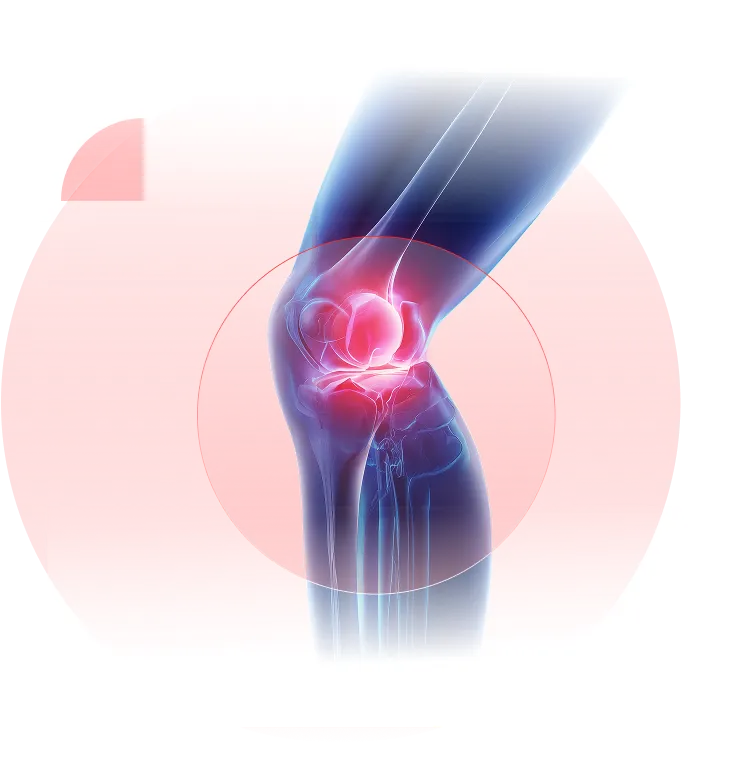Dallas Specialists for Knee Pain & Injury
Knee pain is one of the most common injuries after car accidents, sports trauma, or repetitive strain. Meniscus tears, tendon injuries, and arthritis can cause swelling, locking, or sharp pain with stairs. Without early care, injuries may worsen into arthritis or chronic instability. Learn more about Patellofemoral Pain and IT Band Syndrome.

Locking or giving
way
Swelling after
activity
Pain descending
stairs
Grinding behind
kneecap

Why Choose Us?
Fellowship-trained orthopedic & pain doctors
Injury-focused: accidents, sports, falls
Non-opioid-first: cortisone, PRP, therapy
Same-/next-day evaluations in Dallas
Physical therapy and bracing
Fluoroscopy-guided cortisone injection
Platelet-Rich Plasma (PRP)
Genicular RF ablation
Arthroscopy
Partial replacement (for severe arthritis)
Request Your Same-Day Knee Pain Evaluation
Don’t wait in pain — our expert spine specialists are available for same-day evaluations.
Not required. Your specialist will start with a focused exam and X-rays if needed. If you already have imaging, bring your MRI and reports—we’ll review them. If advanced imaging is indicated, we’ll arrange it and tailor treatment (therapy, injections, or arthroscopy) based on the findings.
Yes. We perform fluoroscopy-guided cortisone injections to place medication precisely inside the joint or around targeted structures. Image guidance improves accuracy, comfort, and diagnostic value. PRP and other procedures are planned the same way to match your diagnosis.
Genicular RF is an option for persistent arthritis-related knee pain when therapy, bracing, or injections haven’t provided enough relief. It targets pain-signaling nerves around the knee to help you move and participate in rehab. Your doctor will confirm candidacy during the exam and imaging review.
We use a stepwise approach: start with targeted physical therapy and bracing, add cortisone or PRP when inflammation or tissue healing needs support, consider arthroscopy for mechanical problems (e.g., meniscus tears/locking), and reserve partial replacement for severe arthritis. Plans are personalized after your evaluation, with same-/next-day access across our seven DFW clinics.
Rapid swelling within 24 hours of a twisting injury often suggests a meniscus tear. X-rays may rule out fracture, but MRI is considered if surgery is being planned. Early diagnosis prevents further damage and guides whether therapy, injection, or arthroscopy is the right step. Learn more about Knee Pain.
Body-weight squats are typically safe after 48 hours. Heavy lifting or barbell squats should wait at least one week to allow the injection to reduce inflammation. Ice the knee as needed and avoid NSAIDs if paired with PRP. Details on the Therapies page.